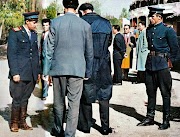*dies Solis in Latin means day of the sun
*dies Solis in Latin means day of the sun
By Fatmir Iliazi
While the name dit/day of the Albanian language, according to Vladimir Orel, comes from Proto-Albanian *dīti, which comes from Proto-Indo-European *díHtis.
The Albanian word *dit/day is related to the English word *tide, which comes from Old English tīd ("time"), from Proto-Germanic *tīdiz ("time"), from Proto-Indo-European *déh₂itis ("time"), from Proto-Indo-European *deh₂y- ("to divide").
While *deis and *day of the Latin and English-German languages are different forms compared to their words for *sun, respectively Solis, Sun-Sonne, the Albanian language word *dit /day has the form very close to the word *diell/sun.
We are dealing with the primitive concepts of light, day, time, and the division of time, and the universal connection of these linguistic units with the cause of this phenomenon, the sun. I think that these units of the first Indo-European language were created on the basis of the multi-qualities of the object called *Diell.
We start the analysis with Solis.
Why is the Latin *deis not related to the form of its name for the sun?
Solis does not match the noun form deis/day. While deis in Latin coincides with the form of day and sun in Albanian?
The Latin deis is clearly a loan from the Albanian language *diell, where we only have a replacement of *l by *s, which doesn't happen in the real world of phonetic transformations.
It is undoubtedly derived from the word of the Albanian language *diell, but the replacement of *l with *s happened, I think, as an artificial addition of the church writers, creating a difference with the old word by adding a new suffix s, a much later addition at the time when the church writers were creating new languages from the first language preserved in the Albanian language.
Statue of a Dioscurus with a headdress resembling Albanian tradition, embellished with a solar symbol.
The second question that arises around this topic:
Is it possible that all these languages are derived from a first language?
The etymologies of these words can also go further geographically, and can also be linked to the Vedic root *svar meaning to shine, and Sanskrit svaryas (later sûryas) = sun, the Hebrew word for sun sheh-mesh, etc.
We also have the "Greek" adjective σείριος (séirios) = brightness, which the ancient poets of the time used to attribute to the sun (ὁ Σείριος = he who shines).
Many words in Greek, Latin, and most other European languages derive from a first language, but what language is that?
Sanskrit language? Latin language? Ancient "Greek" language? Proto-Germanic? Proto-Slavic?
I think that these languages are not directly related to the first mother tongue of these linguistic units, they are very new languages and I strongly suspect that they are artificial languages constructed by the secretariats of the respective churches during the early Middle Ages.
Unlike the ancient languages studied, such as the Tokarian language, Hittite, which have been dead for millennia, the Albanian language is an ancient language that is still alive, it has remained alive continuously for at least 7500 years. The Albanian language has never been studied from this point of view.
The Albanian language is the door to the first language, from which linguists still have a lot to learn.
In the explanations of the origin of the name sun, I have argued the logical connection of the sun with the day, with light, as well as with the division of time into day and night.
Look at the creative unity of the first language
DIELL-DIT-DRIT-DA
SUN-DAY-LIGHT-DIVIDE.
The sun is an object that creates day, light and its circular division that brings each new day. It is the elements of this name I (the light) in its EL movement with the picto-symbol D that have created the concept of dit/day, which in another meaning-giving dimension also gives the concept of the division of time, human life, birth, death, which is the linguistic source of the words we have today about time and related linguistic elements.
Conclusion:
*Dies, *tīd, *day, *díHtis, *deh₂y, etc. come from the root word of the Old Albanian language *diell.
By the way, I am also breaking down the old "Greek" word σείριος, which is also related to the sun:
σείριος
SEIRIOS=
SEIRI=OS later ending
THEIRI=S>TH
THEILI=R>L
DEILI=TH>D
DIELLI
On the other hand, *sirios is very close to the Albanian word for eye *sy, syri in the Geg dialect, siri in the Tosk dialect.
Are the eyes semantically related to the sun?
Was the sun the eye of the sky for primitive people?
Do they have the same round shape, O-shape?
Did primitive man create a connection between the O-shape of the eye with the O-shape of the sun and based on that create the first words for these concepts?
Did primitive man make a connection between visibility and the light of the sun and based on that create the first words for those concepts?











0 Comments